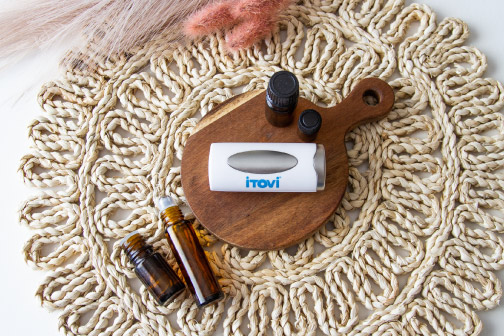
Digestion is an incredible endeavor!
The digestive process takes each bite of your food through a roughly 30-foot journey— coordinating the efforts of ten major organs, as well as countless enzymes and millions of microbiome bacteria—to pull as many nutrients out of your food as possible!
This daily, repeating process largely upholds our mental health, provides us with our daily energy, and provides essential building blocks for all of our other bodily systems!
But, despite all it does for us, it’s easy to take the digestive system for granted!
This is, in part, because our digestive system typically directs, regulates, cleans, and properly paces itself without any need for our conscious input! (Except at the very tail-ends of the process at the dinner table and in the bathroom).
In fact, we usually only give a thought to our digestive systems when something in the digestive process goes wrong—giving rise to tummy troubles, indigestion, IBS, food poisoning, nausea, diarrhea, bloating, or other digestive-related symptoms.
But we don’t have to wait until our digestive system is in distress before we start supporting it! In fact, the sooner we start the better!
A handful of smart lifestyle habits (combined with essential oils) can help us strengthen and protect our digestive systems, so they don’t become inflamed, dysregulated, or otherwise put out of balance! And we can enjoy smooth digestion, good moods, high energy levels, and better, longer lives!
Lesson 1: Respect the Schedule
While our minds enjoy change—our bodies prefer to keep things regular!
When we settle into a regular, balanced rhythm of eating, sleeping, work, and rest, the body is able to match its efforts to this schedule and optimize its functions, including our digestion, for maximum wellness results!
What can I do? What can my essential oils do?
- Eat regularly. Set your meal times and stick to them. Try not to snack too much in between those times. And remember, if you fast, it is better to fast deliberately, regularly, and in a balanced fashion than it is to sporadically skip meals! Use your essential oils to help you combat cravings in the meantime.
- Eat in regular amounts. Bigger breakfast and smaller lunch (more highly recommended) or small breakfast and bigger lunch? Either way, just try to be regular about it.
- Sleep on schedule. Getting poor-quality/inadequate sleep can throw off your bodily rhythms, mess with your appetite, and increase your stress levels! Use your essential oils to maintain regular, optimized nighttime and morning routines to help keep you on track!
- Watch the stress. Excess stress lowers the efficiency of your digestive system, leads to inflammation, messes with your appetite, and can push you into indulging in unhealthy cravings! Take time to relax regularly! Use your essential oils as a cue to help you unwind, meditate, or otherwise de-stress! And use your iTOVi Scanner to help you check in with yourself and know when to de-stress!
Lesson 2: Strengthen the System
Systems stay strong when they are allowed to do what they do best! And this is especially important for our digestive muscles and our gut microbiome!
Digestive Muscles & Digestive Pacing
When our digestive muscles grow weak (through toxic overload, infection, under-use, etc) the pacing of the digestive system can get thrown off leading to digestion that is either too slow (leading to constipation, nausea, and more) OR too fast (leading to diarrhea, bloating, gas, cramps, and more)!
The Importance of the Gut Microbiome
And when our gut microbiome (the ecosystem of bacteria that lives in our intestines) grows weak—either under-populated or insufficiently diverse—we are 1) less able to produce the serotonin and dopamine we need for our mental health, 2) less able to absorb nutrients from our food, 3) more likely to struggle to maintain a healthy weight, and 4) are more likely to suffer from IBS, heartburn, constipation, and other digestive symptoms!
Yikes!
To keep our digestive muscles AND gut microbiome healthy, we need to supply them with 1) the kind of work AND 2) the kind of fuel they need to perform optimally!
What can I do? What can my essential oils do?
- Eat fiber. Fiber works the muscles of the digestive system and helps your gut microbiome. Try to get 25 grams of fiber into your diet every day! Your gut microbiome will do even better if you get your fiber from a diverse range of grains, vegetables, and fruits.
- Eat probiotic foods/take probiotic supplements. Probiotic foods and supplements are especially good for your gut microbiome, especially fermented foods such as yogurt, kimchi, tempeh, miso, sauerkraut, and pickles. (Many of these foods are high in sodium, so don’t eat excessive amounts of them. Bonus tip: Try using them as a salt substitute to eat with your plainer foods.)
- Balance your macros. Every day your diet should include a roughly equal amount of carbs, proteins, and fats (make sure to prioritize healthy fats over unhealthy saturated fats!). Your digestive system will thrive on this balance! Use a nutrition tracker app (and maybe some personalized advice from your DNA) to help you if needed.
- Get your micronutrients in! Your basic vitamins and minerals play a vital role in supporting, not just your digestive system, but every system in your body! Use a nutrition tracker app (and maybe some personalized advice from your DNA) to help you maintain your vitamin and mineral levels!
Lesson 3: Protect & Streamline the System
While the human body’s inflammatory response in the body is technically a good thing (well, it’s well-intentioned at least—our tissues grow inflamed in an effort to protect and heal us), our body’s inflammatory response has a tendency to overreact.
(Kind of like the allergies that crop up when our body mistakenly thinks that the pollen in the air is going to kill us.)
The trouble is that if our tissues stay inflamed for too long, that inflammation interferes with our ability to digest properly!
The best approach is to never let inflammation get out of hand in the first place! We must keep our digestive system safe from toxins and harm so that our digestive tract doesn’t need to inflame!
What can I do? What can my essential oils do?
- Inflammatory foods, no. Antiinflammatory foods (and oils), yes! Inflammatory and gut-microbe-injuring foods include simple carbs (including sugary things and white breads), fried foods, buttery/fatty foods, processed meat, and alcohol. Antiinflammatory foods include berries, green leafy vegetables, fatty fish, nuts, and more. Also, many (if not most) essential oils have anti-inflammatory and antioxidant properties!
- Eat clean. Unfriendly bacteria, toxic chemicals and preservatives, and other nasty things that trigger inflammation in your digestive tract often come riding on or in our food. So choose your food wisely. And also wash, store, and cook it properly. (And you might want to re-think the “5-second rule”…Sorry.)
- Hydrate! Having the right amount of water in our digestive system helps keep things flowing smoothly—so waste materials and toxins get flushed out instead of getting stuck in our digestive tract to cause damage. Try to build up your water-drinking habits so you get 3-4 liters of water a day.
- Chew Thoroughly. Many of us are swallowing our food too fast! Dieticians and gut health experts recommend chewing each bite of food 30+ times. This takes stress off of your digestive system and helps you enjoy more flavor!
- Before- or After-Meal Tummy Rub or Tea with Essential Oils. Around mealtimes is a great time to give your body just a little extra digestive support. Teas and tummy rubs made with peppermint, ginger, fennel, cardamom, and other digestive-support oils are a great idea! (Just be sure to dilute properly and make sure to strictly follow safety guidelines for quantity and quality when ingesting essential oils!)
Class Ideas |
|




